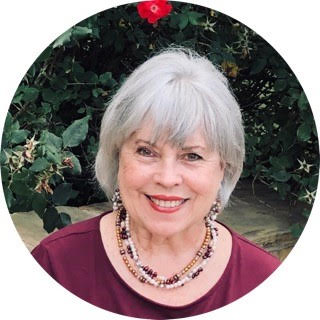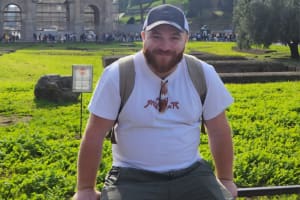Corrie ten Boom’s wisdom still speaks today

Beloved by Christians for generations, Corrie ten Boom has sustained and inspired millions with her wisdom. One of those sayings is: “When a train goes through a tunnel and it gets dark, you don’t throw away the ticket and jump off. You sit still and trust the engineer.”
Her book The Hiding Place, published in 1971, tells the story of her family, watchmakers in Haarlem, the Netherlands, during the Holocaust. She was a heroine in the Dutch resistance and survived imprisonment in a concentration camp after Nazis arrested her and her sister for hiding and saving Jewish families.
Both Christians and Jews esteem Corrie. Israel’s Yad Vashem Remembrance Authority honored Corrie ten Boom (1892-1983) as “Righteous Among the Nations.” Strolling along the Avenue of the Righteous at Yad Vashem, Christian visitors make sure to stop at Corrie’s tree, which was dedicated on December 12, 1967. I have walked the avenue many times. Her tree has grown tall.
My interest in Israel began when I married my Jewish husband, Paul. When we heard Corrie speak at a church, her testimony motivated our advocacy for Israel. Reading The Hiding Place, seeing the movie, and visiting the Ten Boom House Museum in the Netherlands has remained with both of us, a Gentile and Jewish couple.
Following the horrors of October 7, 2023, I have written every week about Israeli traumas in the aftermath. Israel had instituted trauma treatments in the past, such as the Israel Trauma Coalition and its 12 resilience centers that provide multidisciplinary intervention before, during, and after emergencies. However, with an entire nation traumatized the need is massive.
Avida Bachar, a farmer from Kibbutz Be’eri, watched Hamas terrorists murder his wife and son on October 7. He also lost his leg and makes an observation that the United States and every other country need to understand: “Palestinians must be moved from Gaza … transfer them to other sovereign states.” Since no other nation is willing to relocate them, it leaves Israel under intense pressure to solve the problem amid terrorists threatening them every day and well into the future.
After October 7, Israel quickly began expanding every trauma treatment avenue in its government and in private institutions—joined by Jewish institutions globally and Christian charities, as well. For example, CBN Israel, Regent University, and the Israel Trauma Coalition developed a unique approach to train Russian-speaking Israeli counselors to help Russian-speaking Israelis, who comprise 15 to 20 percent of the Israeli population. The trauma therapy techniques they implemented were learned by counselors during Ukraine’s war with Russia.
Jewish Israelis are attempting to embrace their histories of resilience, yet their process is compounded by antisemitic demonstrations invading the world with shouts of “kill the Jews.” It is shocking that protestors refuse to understand why Israel is forced to defend its nation in the seven-front war it’s currently engaged in.
Jewish traumas are historically deep-seated and brutal amid echoes of expulsions, pogroms, and the Holocaust. My husband Paul’s parents, like millions of Jewish refugees to America (1880-1924), fled Russian pogroms as children with their parents. They stepped into freedom through Ellis Island, later met and married in Bronx, New York, worked hard, and raised five children. His “pops” served in World War II, drove a taxi, and ran a newspaper stand in Manhattan. They rarely if ever spoke about that period, but Paul vividly remembers his mom describing her childhood traumas “hiding in haystacks” to escape the Russian czar’s pogroms against Jews. Paul is a proud first-generation American, a Navy veteran, and has adopted Fiddler on the Roof as his family’s story.
In addition to Israel’s national trauma, it seems that mental health struggles are hovering like a cloud over our world. Here in the United States, the Centers for Disease Control reported that we are facing a “mental health catastrophe.”
Our response to this catastrophe is three-fold. Paul and I coauthored the recently published book, Mental Health Meltdown: Illuminating the Voices of Bipolar and Other Mental Illnesses. We wrote it to help others hold on to hope, as we had amid our own personal dark clouds and blue skies. We have been married for 48 years, and Paul’s lifelong bipolar condition was finally diagnosed 25 years ago. Second, Paul began volunteering in 2022 as a weekly co-facilitator with the national Depression and Bipolar Support Alliance (DBSA). Finally, and most significantly, as believers we felt compelled to share our own pain to comfort others with the comfort God has repeatedly given to us in 2 Corinthians 1:3-5.
Corrie ten Boom’s testimony grew even more foundational from years ago, capturing our hearts for Israel, and now when we began writing and formulating messages of hope and help. Her quote, which I mentioned above, is included in our prologue. The train theme became descriptive for our book! Mental Health Meltdown is a reader-friendly book, a traveling companion that pierces the darkness with light—through first-person stories of 35 others who share their sorrows and successes with depression, bipolar, PTSD, and other mental health issues.
We invite readers to ride what we call the hope train through their individual tunnels and to sit with us and our storytellers to gather practical tools and look ahead for Light and trust the Engineer. In voicing wide-ranging life experiences—ours and others’—we want the stories to help readers grasp insights about differently wired brains from a variety of people.
Public perceptions are changing and hopefully erasing stigmas. No one chooses a physical disability or illness, and no one chooses a mental illness. When the public views mental illnesses with the same kindnesses offered to those with physical illnesses, it will serve to reduce the reality that “no one takes my status seriously because no one can see the disability.”
We have discovered that pastors are often at a loss about how to approach mental health support within their congregations. We included a chapter with one inspiring and insightful pastor’s sermon where he kindly and honestly spoke about mental illnesses. He clearly emphasizes that “God works through miracles and medicines,” and adds, “If you are in Christ and suffer with mental health issues, it does not mean you are less of a Christian nor is it a sin to have a mental illness.” He illustrates King David’s depression in Psalm 139:7-12. His chapter is incredibly helpful!
Personally, knowing others with mental illnesses—and knowing Israelis are determined to survive amid profound grief and traumas—let us recall the prophet Elijah falling asleep under a juniper tree due to emotional, spiritual, and physical exhaustion. In 1 Kings 19:3-4. Elijah asked God to take his life, yet God responded with comfort, encouraging him to rest and providing food and water for him. When it comes to Israel and anyone you know grappling with mental struggles, following God’s example of focusing on prayer, with help and comfort as your watchwords.
You may order our words in Mental Health Meltdown on Amazon.
This article originally appeared here and is reposted with permission.

A speaker and consultant, Arlene Bridges Samuels authors the weekly feature column for The Christian Broadcasting Network/Israel on their Facebook and Blog since 2020. Previously she pioneered Christian outreach for the American Israel Public Affairs Committee (AIPAC). Retiring after nine years, she worked part-time for International Christian Embassy Jerusalem USA as Outreach Director for their project, American Christian Leaders for Israel (ACLI) Arlene is an author at The Blogs-Times of Israel, often traveling to Israel since 1990. By invitation she attends the Israel Government Press Office (GPO) Christian Media Summits as a recognized member of Christian media worldwide. Read more of her articles at CBN Israel blog. Arlene and her husband Paul Samuels have coauthored a book, Mental Health Meltdown, illuminating the voices of bipolar and other mental illnesses. On Amazon
You might also like to read this:
















